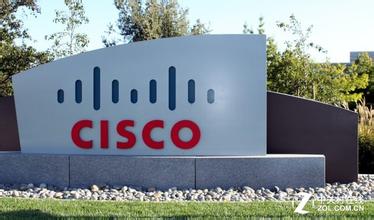Reporter: You invest a lot in R and D about three point five billion dollars, that's the figure I read, on a revenue of about twenty five billion dollars. This is a huge amount. We know that you have research centers not only in the US, other places around the world. What are your other top research centers, which ones are they? And going back to Turkey, do you anticipate at any point that you will make a R and D investment in Turkey? How do you decide the physical locations for the research centers?
記者:我曾經讀到過一組數據,上面寫道,思科的財政收入為250億美元,而其在研發方面的投入也很多,大約有35億美元,這是一筆不小的數目。我們知道,思科不僅在美國有研究中心,在世界上的很多其他國家也有。思科在美國以外的重要的研究中心有哪些呢?我們回到土耳其,您準備在那里進行研發方面的投資嗎?對于研究中心的物理位置,您是通過怎樣的方式確定的呢?

Chambers: We tend to make R and D investments where we see start—ups. And so where we see very aggressive start-ups, whether it’s Scientific Atlanta in Atlanta, in the US, or investments in Bangalore, or in Shang Hai, which are two of our other major investment centers around the world, we tend to go where the start—ups are. That’s because the start—ups may bring in benefits for us. And we tend to go next to the universities who train the people. So we try to attract the best and the brightest of a country wherever they are in the world. Some of them will be in physical location such as Bangalore or Shang Hai, or Raleigh, or San Hose, or Boston, or Texas, or elsewhere. This would be virtually around the world where we attract the best and the brightest, perhaps they work in Turkey, or we attract them to work in one of our other centres around the world. So our goal is to attract the best and the brightest and get them to be a part of Cisco. I believe, that is quite important for Cisco.
錢伯斯:任何一個有始創公司的地方我們都會進行研發投資,無論是在美國亞特蘭大的"科學亞特蘭大",還是在班加羅爾、上海,這兩個地方是我們在世界上的主要投資地。我們試圖進入那些新發展起來的地方,因為他們可能會為我們帶來收益。接下來我們也試圖走進培養人才的大學,吸收世界上最優秀、最聰明的人才,他們中的一些人可能會在班加羅爾、上海、納羅利、圣荷西、波士頓或者是德克薩斯等地,事實上,我們將從世界范圍內尋找那些聰明的人才,也有可能他們是在土耳其工作,或者我們吸引他們到我們其他地方的研發中心去工作。所以我們的目標就是,要爭取引進世界上最出類拔萃、最聰明的人才,使他們成為思科的一分子。我相信,那對思科的發展是很重要的。
Reporter: OK,I see your point. My next question is,in the coming years of development, what is your vision for Cisco?
記者:好的,我已經明白了您的意思。 我的下一個問題是,在接下來的幾年里,您希望思科有怎樣的發展呢?
Chambers: My vision for Cisco has not changed in fifteen years. I view that Cisco can play... if we are effective and if we do what is right.... the leading role in changing the way the world works, lives, learns, and plays through the internet. And we would like to be the company that helps that happen, both from a success on the financial side, but also a success on the corporate/social responsibility side. There can be no higher goal in life than changing people’s lives on a global basis, and I believe the Internet is that equaliser along with education. So that is our dream for Cisco. Time will tell whether we can achieve that or not. We hope that Cisco can play quite an important role in people’s lives.
錢伯斯:我對思科未來的發展規劃已經 15年沒有發生變化了。如果我們能夠進行有效的工作,做正確的事情,我希望思科能夠通過因特網,在改變全世界的工作、生活、學習、娛樂方式等方面發揮領導作用。我們希望能夠成為一個促進上述改變實現的公司,無論從金融方面,還是從社會責任方面來說我們都可以獲得成功。再也沒有比改變全世界人民的生活方式更高的目標了, 我相信因特網能夠與教育一樣,成為一個均衡器。所以那就是我們對于思科未來發展的夢想,時間會告訴我們是否能夠做到那樣。我們希望,思科能夠在人們的生活中發揮重要作用。
Reporter: Well on that note, I want to thank you very much for this candid interview, and for your time. We appreciate it very much.
記者:嗯,在這個前提下,我非常感謝您能夠抽出時間來接受我們的采訪,我們感激不盡!
Chambers: In fact it’s a pleasure. Thank you for allowing me to share my views.
錢伯斯:我也很高興來到這里,也謝謝你們給我這個機會來分享我的一些觀點。













